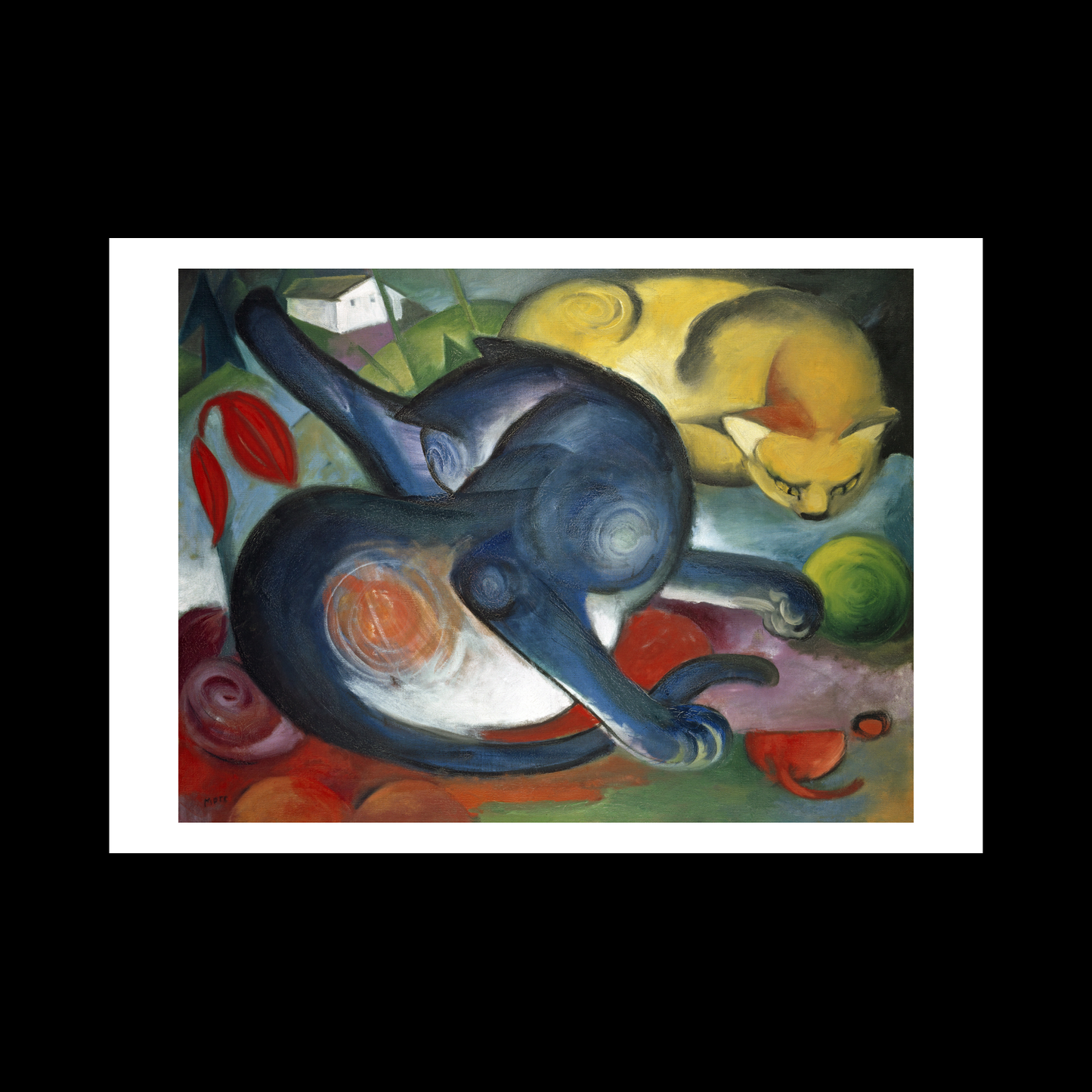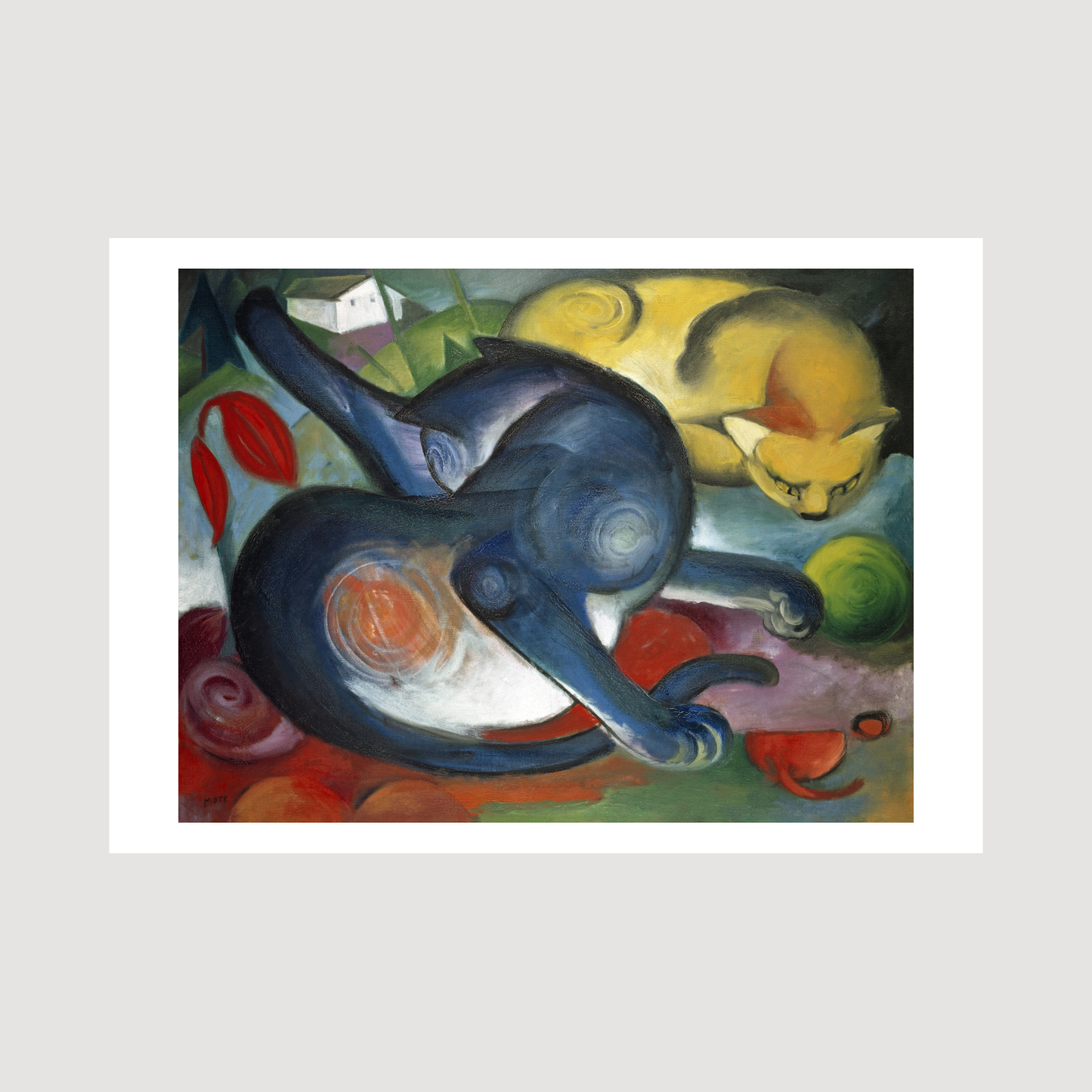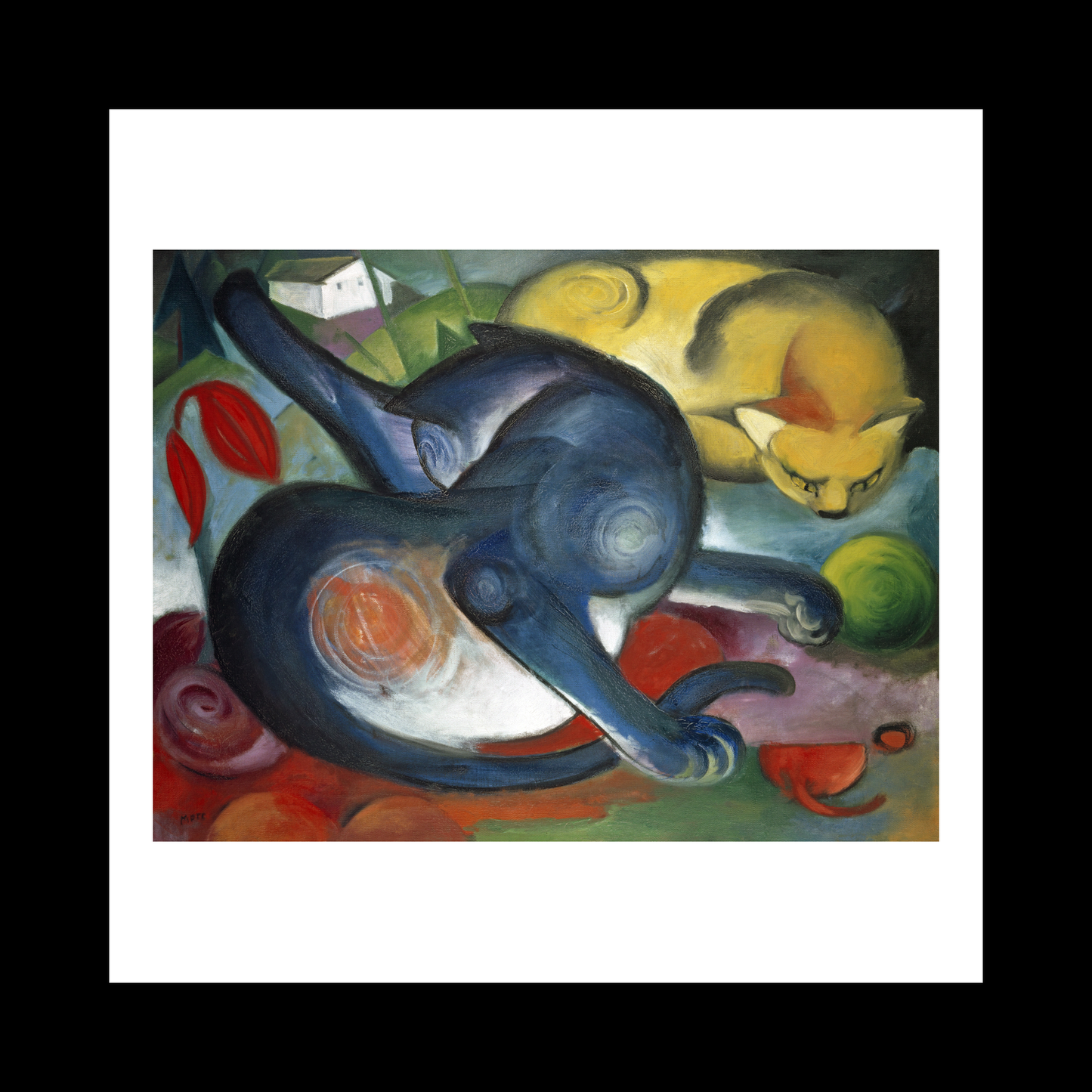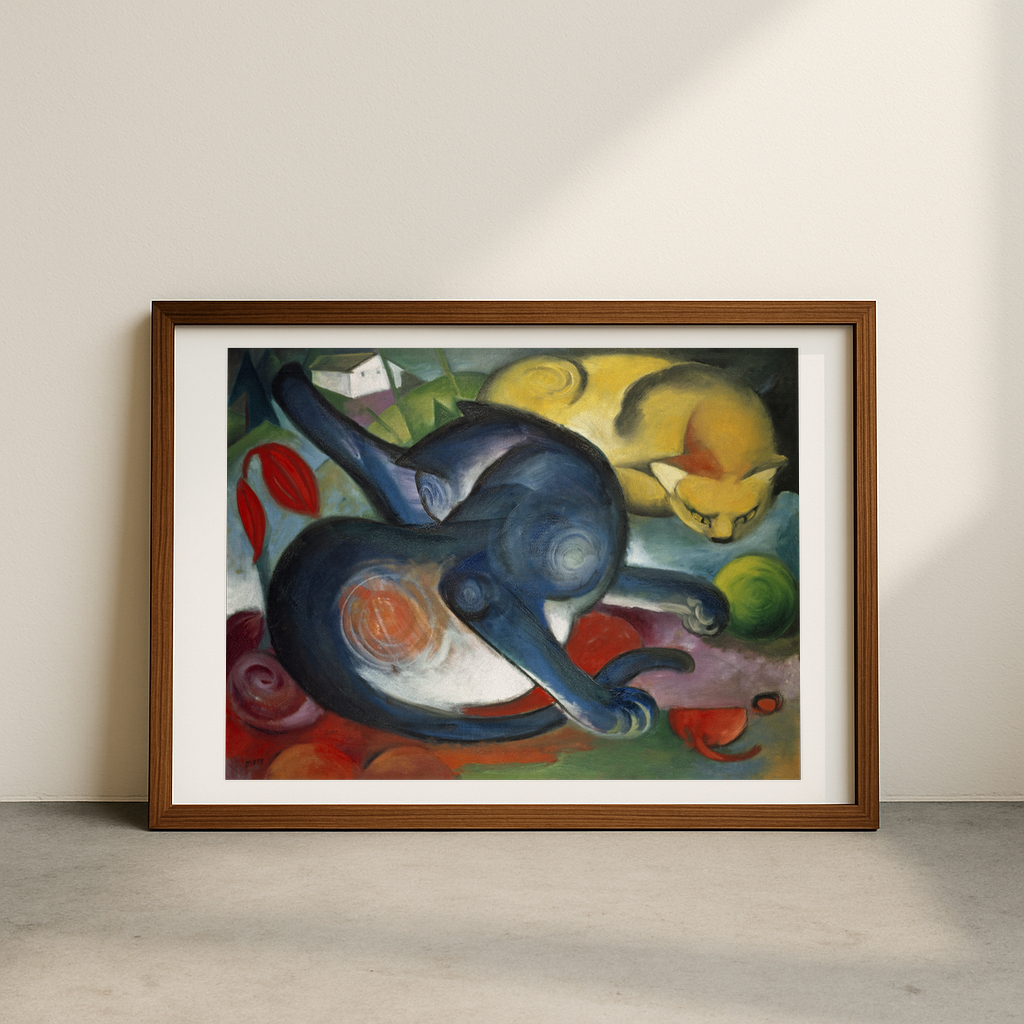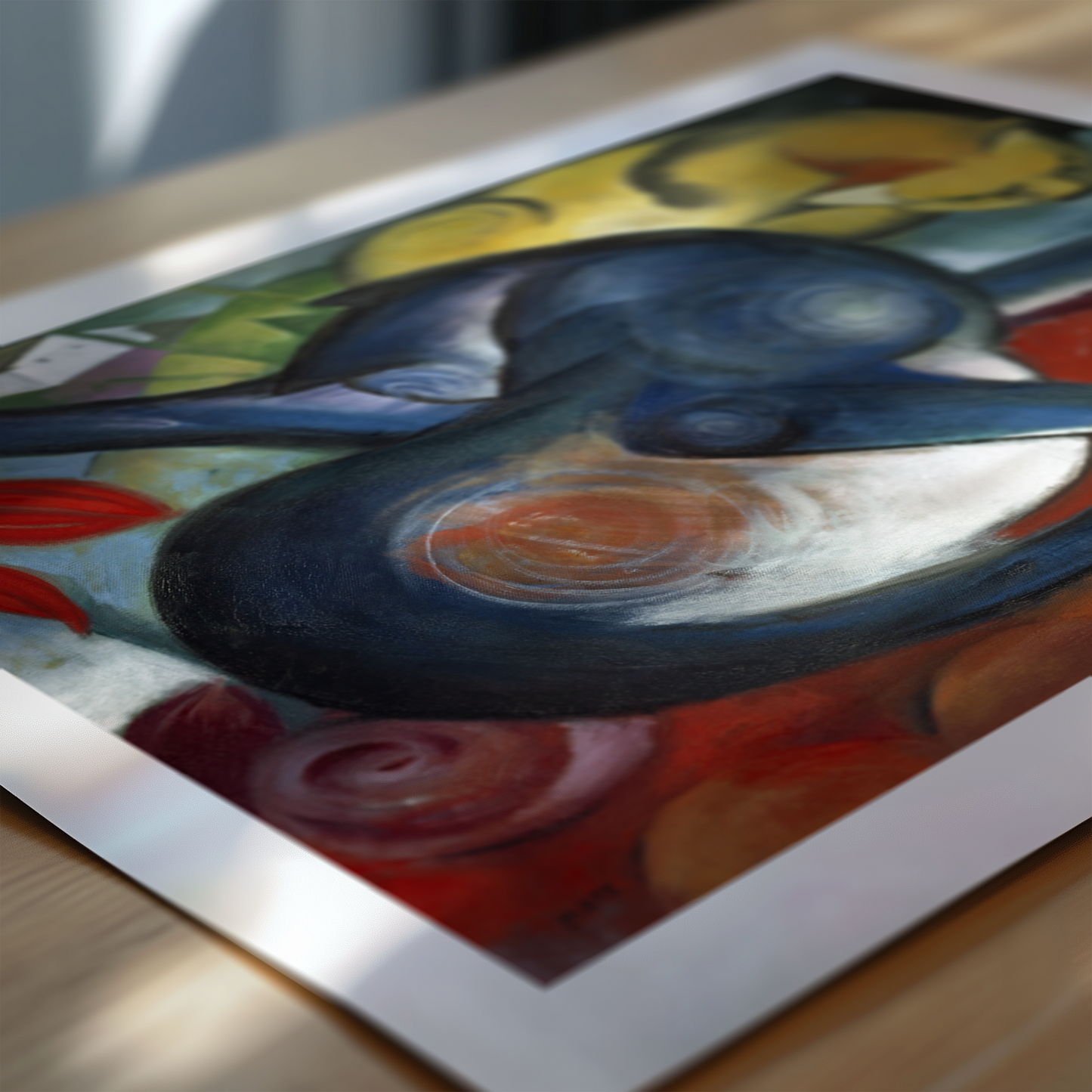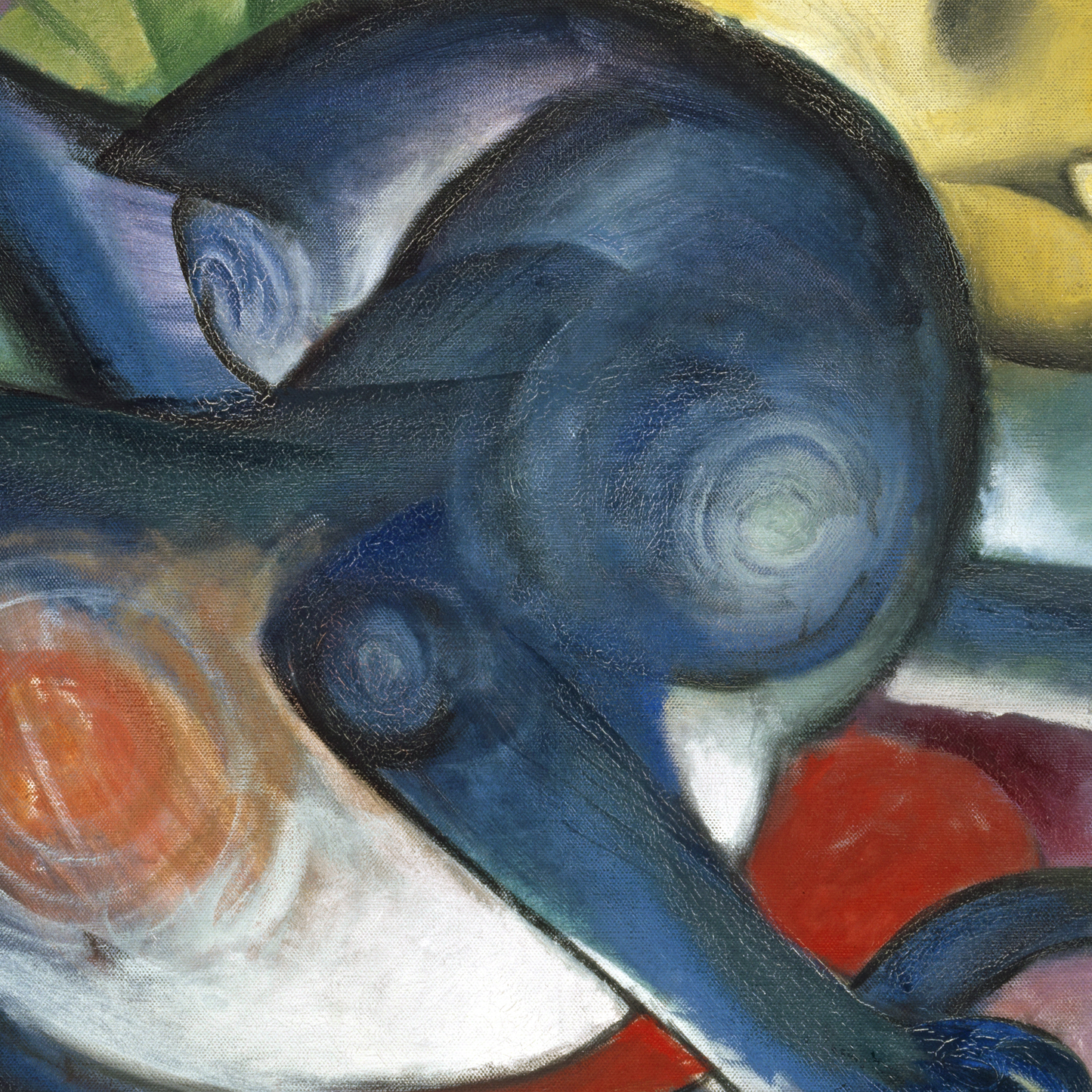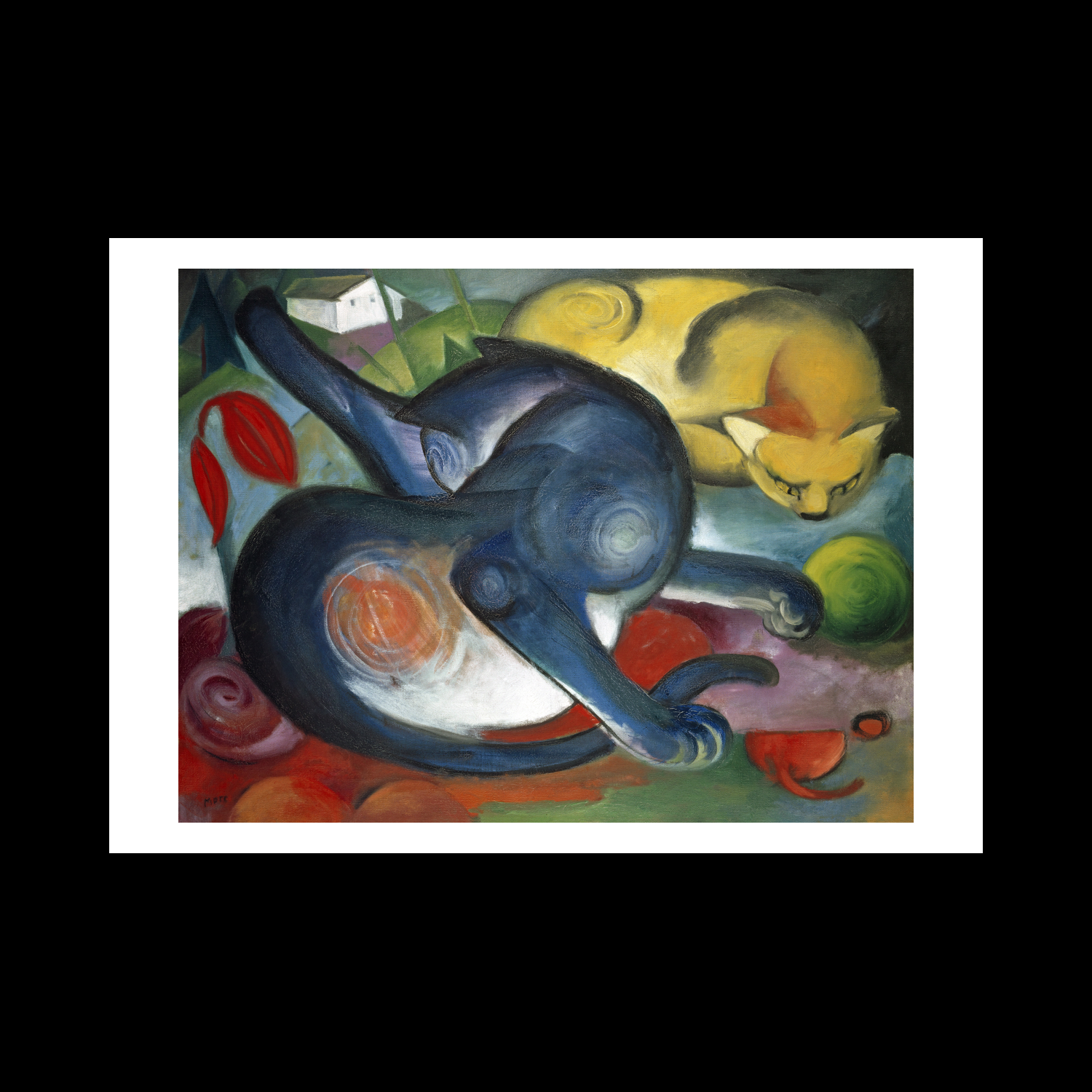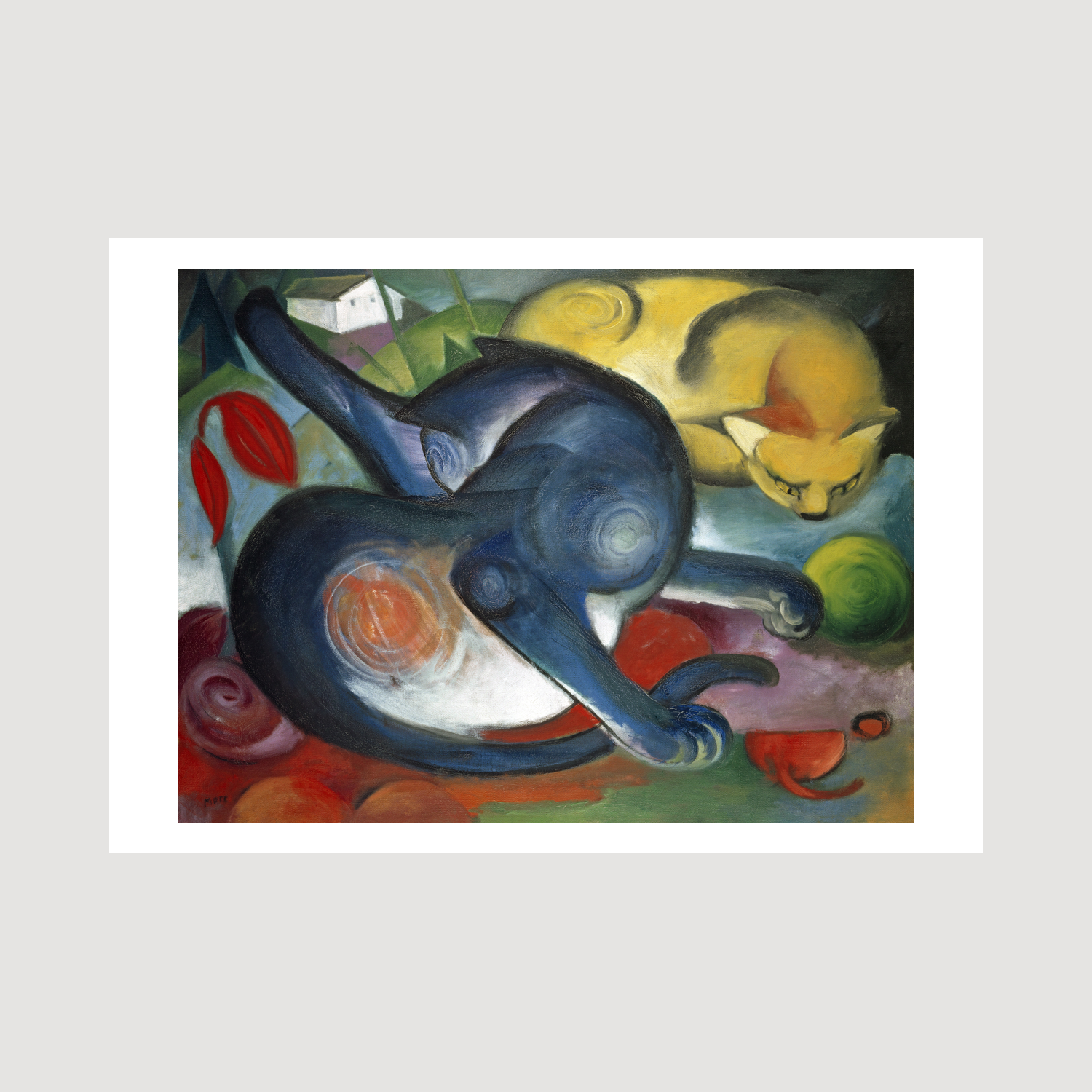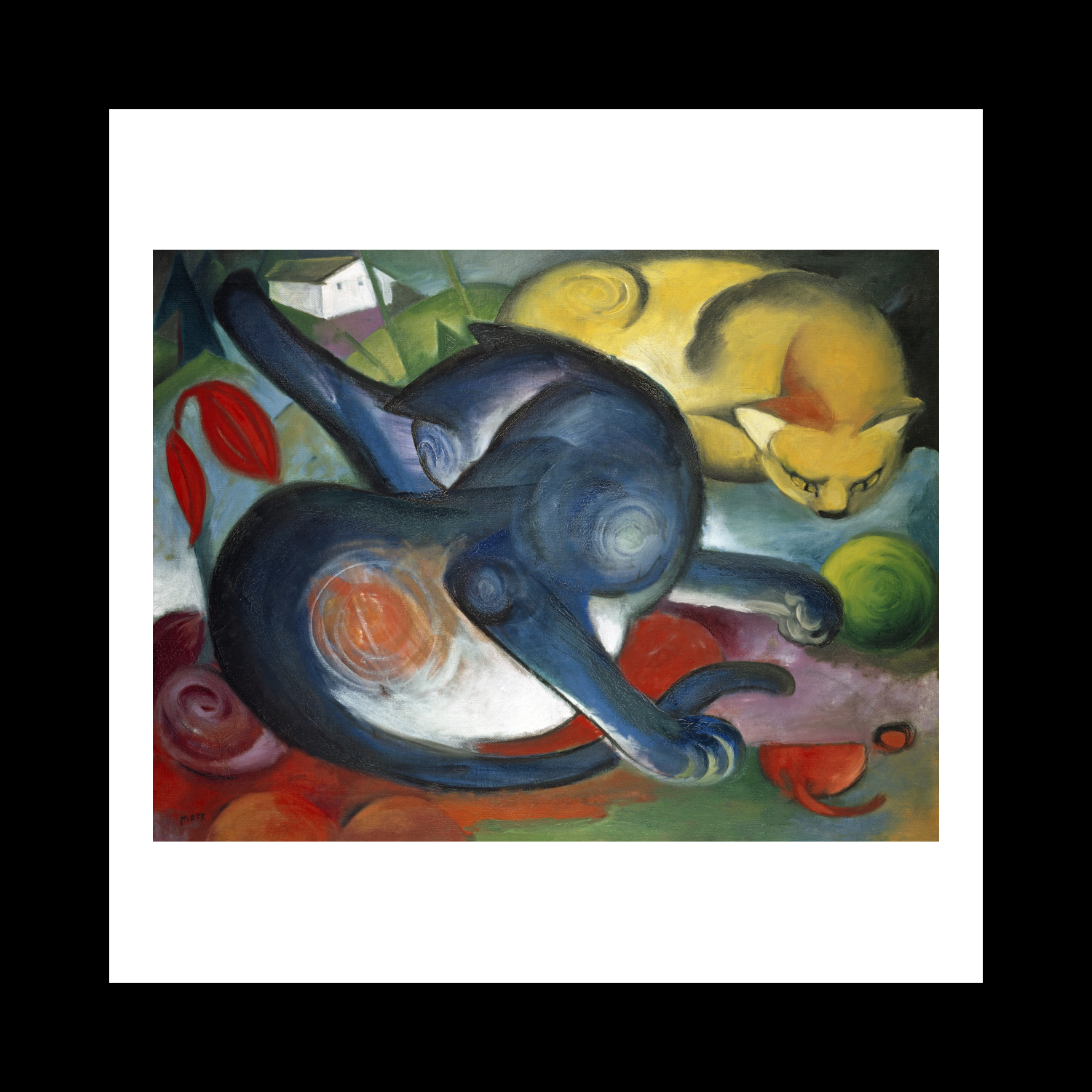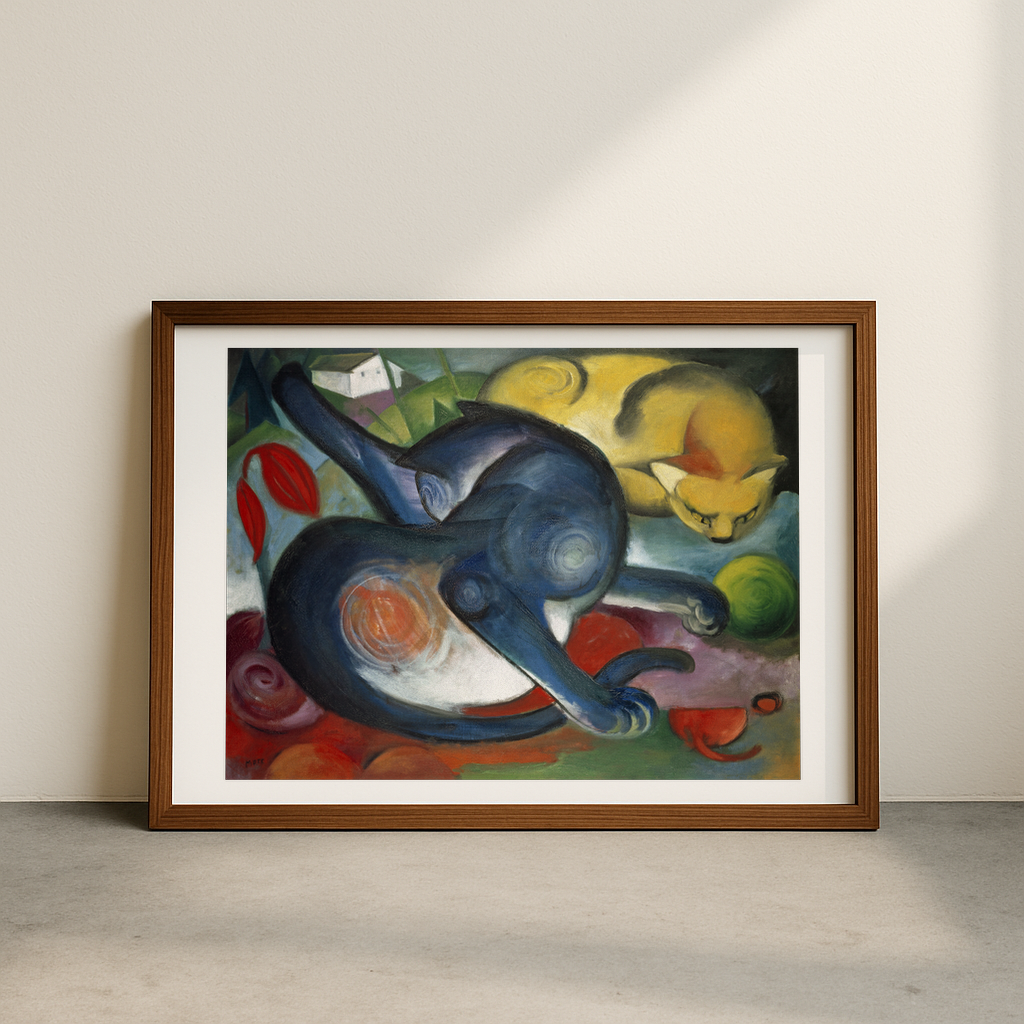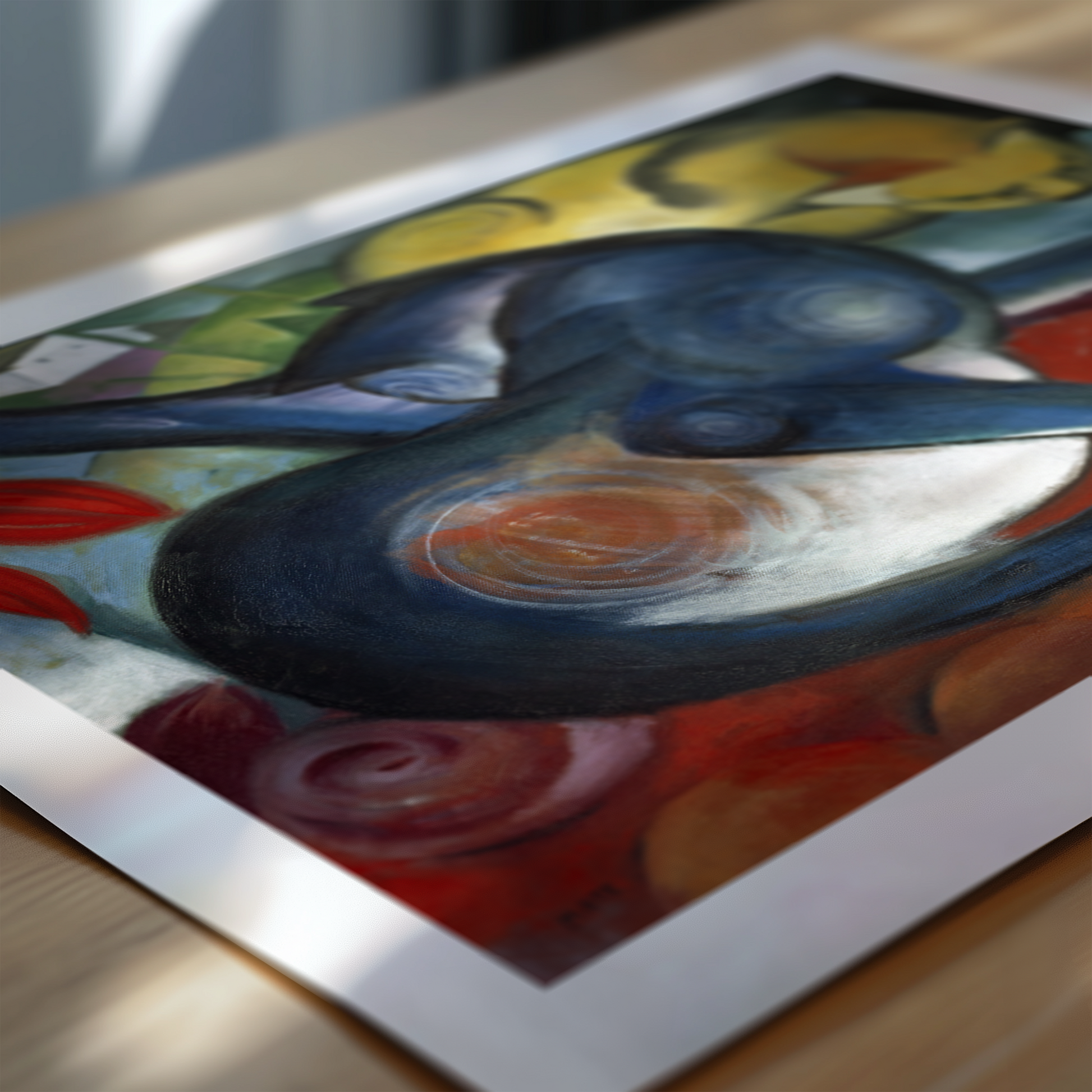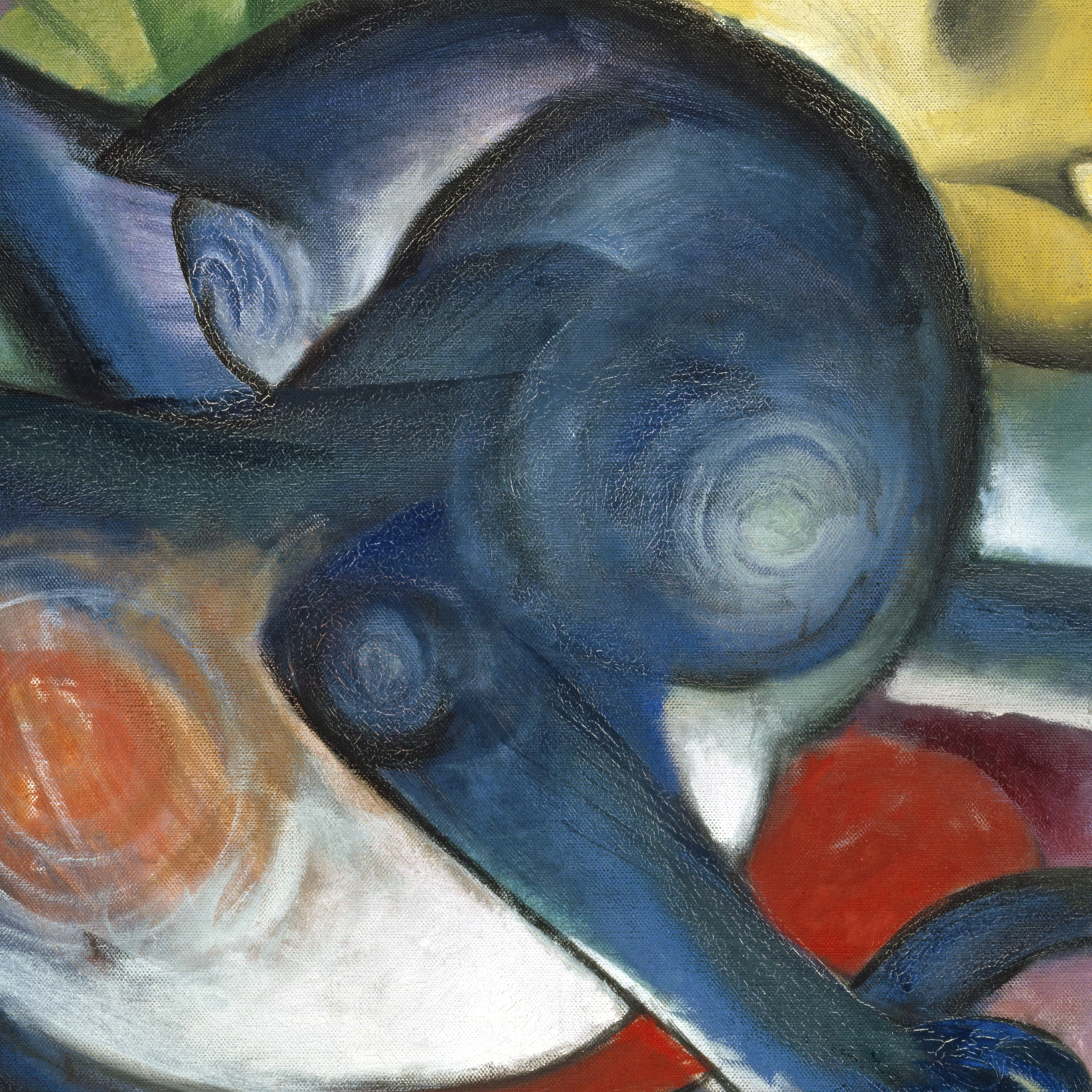1
/
of
6
Two cats, blue and yellow
Two cats, blue and yellow
Regular price
£12.45 GBP
Regular price
Sale price
£12.45 GBP
Taxes included.
Quantity
Couldn't load pickup availability
"Two Cats, Blue and Yellow" (1912) by Franz Marc exemplifies the German Expressionist movement's bold use of colour and emotional intensity. Marc's distinctive style transforms these felines into geometric forms, with their bodies composed of flowing, angular shapes in vibrant blue and yellow hues. The composition creates a harmonious interplay between the two cats, their bodies curved and intertwined in an almost abstract dance.
Marc's fascination with animals stemmed from his belief that they possessed a purer connection to nature than humans. As a founding member of Der Blaue Reiter (The Blue Rider) group, he sought to capture the spiritual essence of his subjects through colour symbolism. Blue represented masculinity and spirituality, while yellow symbolised femininity and joy – making these cats a study in duality and balance.
The painting reflects Marc's innovative approach to animal portraiture during the pre-WWI period. Rather than pursuing realistic representation, he stripped away conventional forms to reveal what he perceived as the inner life of animals. This work emerged during a pivotal time in European art history, when artists were breaking free from traditional naturalistic painting. Tragically, Marc's artistic journey was cut short when he died in combat during World War I in 1916, making this piece particularly poignant as part of his limited but influential body of work.
View full details
Marc's fascination with animals stemmed from his belief that they possessed a purer connection to nature than humans. As a founding member of Der Blaue Reiter (The Blue Rider) group, he sought to capture the spiritual essence of his subjects through colour symbolism. Blue represented masculinity and spirituality, while yellow symbolised femininity and joy – making these cats a study in duality and balance.
The painting reflects Marc's innovative approach to animal portraiture during the pre-WWI period. Rather than pursuing realistic representation, he stripped away conventional forms to reveal what he perceived as the inner life of animals. This work emerged during a pivotal time in European art history, when artists were breaking free from traditional naturalistic painting. Tragically, Marc's artistic journey was cut short when he died in combat during World War I in 1916, making this piece particularly poignant as part of his limited but influential body of work.
